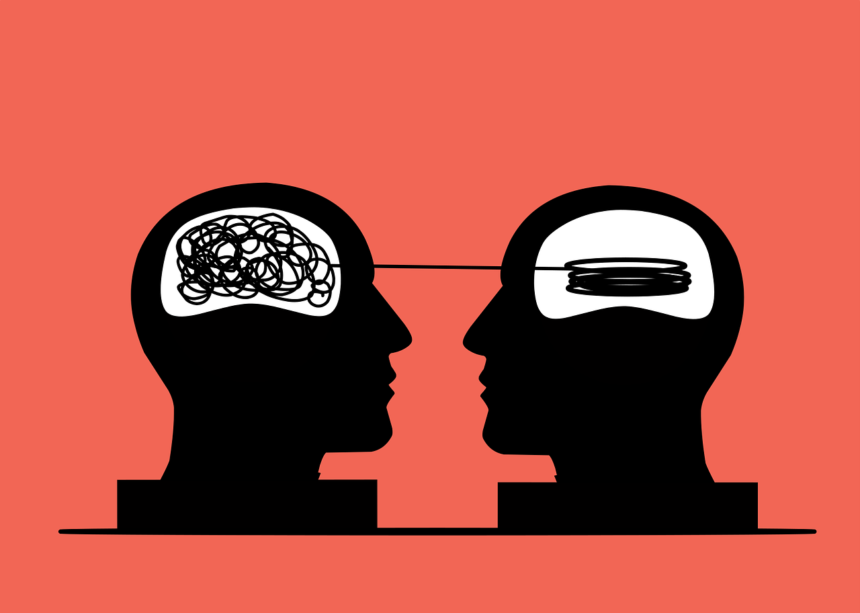Awareness, Common Disorders, and Available Resources
The Importance of Mental Health
Mental health is a crucial aspect of our overall well-being, impacting our thoughts, emotions, and behaviors. It affects how we handle stress, relate to others, and make choices. Mental health is essential at every stage of life, from childhood and adolescence through adulthood. Just as physical health requires attention and care, so does mental health. Neglecting it can lead to significant consequences, not just for the individual but also for society as a whole, including economic costs, social stigmas, and reduced quality of life.
The stigma surrounding mental health often prevents people from seeking the help they need. It’s important to foster a culture of openness and support, where individuals feel comfortable discussing their mental health issues without fear of judgment. Promoting mental health awareness can lead to early intervention, reducing the severity of mental health disorders and improving recovery outcomes.
Common Mental Health Disorders
Mental health disorders are varied and can affect individuals differently. Here are some of the most common types:

1. Depression
Depression is more than just feeling sad or experiencing a bad day. It is a persistent condition that affects an individual’s mood, thoughts, and physical health. Symptoms include persistent sadness, loss of interest in activities once enjoyed, changes in appetite and sleep patterns, fatigue, and difficulty concentrating. Depression can be debilitating, affecting a person’s ability to function in daily life.
2. Anxiety Disorders
Anxiety disorders encompass various conditions, including generalized anxiety disorder (GAD), panic disorder, and social anxiety disorder. These conditions involve excessive fear or anxiety that interferes with daily activities. Symptoms can include feelings of nervousness, restlessness, increased heart rate, rapid breathing, sweating, and difficulty concentrating.


3. Bipolar Disorder
Bipolar disorder is characterized by extreme mood swings that include emotional highs (mania or hypomania) and lows (depression). These mood swings can affect sleep, energy, activity levels, judgment, behavior, and the ability to think clearly. During manic episodes, individuals may feel euphoric, full of energy, or unusually irritable, while depressive episodes may bring about symptoms of depression.
4. Schizophrenia
Schizophrenia is a severe mental disorder that affects how a person thinks, feels, and behaves. People with schizophrenia may seem like they have lost touch with reality, which can be distressing for them and their loved ones. Symptoms include hallucinations, delusions, disorganized thinking, and severe impairments in daily functioning.


5. Eating Disorders
Eating disorders, such as anorexia nervosa, bulimia nervosa, and binge-eating disorder, involve preoccupation with food, body weight, and shape. These disorders can lead to severe physical health problems and are often associated with distress and impaired functioning.
Resources for Support and Treatment
Accessing the right resources is critical for managing mental health disorders. Here are some key resources available for support and treatment:
1. Mental Health Professionals
- Psychiatrists: Medical doctors who specialize in diagnosing and treating mental health disorders. They can prescribe medications and provide psychotherapy.
- Psychologists: Trained professionals who can diagnose and treat mental health disorders through various forms of therapy, but typically do not prescribe medication.
- Counselors and Therapists: Professionals who provide talk therapy to help individuals manage their mental health issues. They may focus on specific issues such as marriage and family therapy, substance abuse, or trauma.
2. Support Groups
Support groups provide a platform for individuals to share their experiences and coping strategies. They can be particularly beneficial for those who feel isolated or misunderstood. Many organizations offer support groups, both in-person and online, for a range of mental health conditions.
3. Hotlines and Crisis Services
- National Suicide Prevention Lifeline: A toll-free hotline available 24/7 for anyone in suicidal crisis or emotional distress. In the U.S., the number is 1-800-273-TALK (8255).
- Crisis Text Line: Provides free, 24/7 support via text message. Text “HELLO” to 741741 in the U.S.
- Local Emergency Services: In case of immediate danger, calling emergency services (911 in the U.S.) is essential.
4. Online Resources and Apps
- Mental Health America (MHA): Provides resources and information on mental health conditions, treatment options, and support.
- National Alliance on Mental Illness (NAMI): Offers educational materials, advocacy, and support for individuals with mental health conditions and their families.
- Mobile Apps: Apps like Headspace, Calm, and Moodfit offer guided meditations, relaxation exercises, and tools to track and manage mental health.
5. Educational Resources
Educating oneself about mental health can empower individuals to seek help and support others. Books, articles, webinars, and workshops provide valuable insights into managing mental health.
Building a Supportive Environment
Creating a supportive environment is key to improving mental health outcomes. Here are some ways to build such an environment:
1. Promoting Open Communication
Encourage open conversations about mental health in families, workplaces, and communities. Normalize seeking help and discussing mental health issues without stigma.
2. Educating and Raising Awareness
Conduct awareness campaigns and educational programs to inform people about mental health, the signs and symptoms of mental health disorders, and the importance of seeking help.
3. Providing Access to Resources
Ensure that individuals have access to mental health resources, including affordable and accessible treatment options. Employers can offer Employee Assistance Programs (EAPs) that provide confidential counseling services to employees.
4. Supporting Policy Changes
Advocate for policies that improve mental health services, such as increased funding for mental health programs, improved insurance coverage for mental health treatment, and the integration of mental health services into primary care.
Conclusion
Mental health is an integral part of our overall health and well-being. By raising awareness, understanding common mental health disorders, and utilizing available resources, we can create a society that supports mental health and reduces the stigma associated with mental health issues. Early intervention and appropriate treatment can significantly improve the quality of life for individuals with mental health disorders, fostering a healthier, more supportive community for all.






